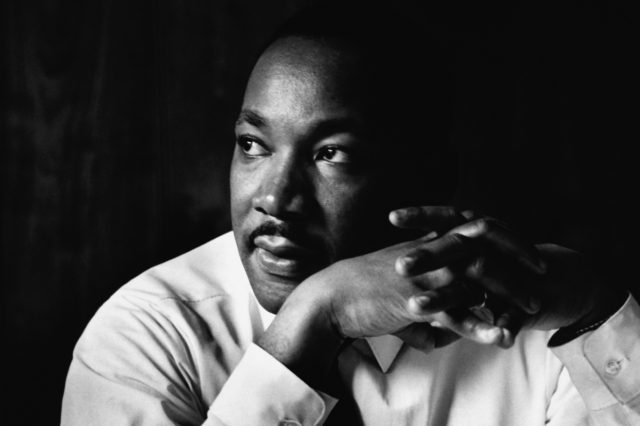Where’s your But?
In his sermon, “But if Not,” Dr. MLK does what he has become legendary for: he speaks truth to power.
The 1967 sermon, delivered in November of that year, four months before he was assassinated, one month before he announced a massive civil disobedience campaign called Poor People’s Campaign, was a blueprint for civil disobedience.
King had just come back from writing his last book in the Caribbean, “Where do we Go From Here”.
King was building a multiracial, multiethnic coalition to address racial disparities and poverty. King was responding to mounting opposition to his efforts.
And in the 30 minute sermon, warns his critics about the resolve of those in his movement.
He tells the critics, “Our God will deliver us from your attacks, but, if not, we are still not going to bend to your will.”
In this one sentence, MLK set forth a major theological position in which he indicated that our faith as believers is so deep and that we’ve found something so dear and so precious that nothing can turn us away from it.
“Our God is able to deliver us, but if not…This simply means, my friends, that the ultimate test of one’s faith,” King adds, lies in our ability to say “But if not.”
King touched on a grammatical epiphany as well. The placement of the word “but” in a sentence.
But. It is not a noun. Not a verb. Not an adjective. It is a word used to introduce something contrasting with what has already been mentioned.
So it’s placement in a sentence is key.
But, at the beginning of a sentence can sound apologist. “But, for…” or “But, mom…”
A but the end end of a sentence sounds aloof and overly formal.
A but in the middle of a sentence contrasts what was said before the but. “I like this, that and the other, but…”
Sometimes but can denote defiance and determination. “You may have this or that, but I’m still not going to…”
The “But, if not” of MLK was in the right place. Let the world know he was singularly focused on justice.
In the book of Daniel there were three young men whose But was in the right place.
Nebuchadnezzar, king of Babylon, has taken and conquered Judah as God told them would happen.
This king had a large statue built in the middle of the town square. Neb. decreed that his royal band was to play and whenever they played, people were supposed to bow down and worship it.
If they did not, would be thrown into a fiery furnace. And people did as was asked.
One day Nebuchadnezzar called in the judges and the governors and the sheriffs, and they had a dedicatory service for this golden image, and then he said to them “I’m instructing you to see that everybody bows before this golden image.”
But there were three young men, Daniel’s friends. One’s name was Shadrach, the other one’s name was Meshach, and the other name was Abednego. They worshipped the God of Abraham. Our God.
And they answered–and I read it from the scripture–and said to the king
“O Nebuchadnezzar, we are not careful to answer thee in this manner. If it be so, our God whom we serve is able to deliver us from the burning fiery furnace, and he will deliver us out of thine hand, O king. But if not, be it known unto thee, O king, that we will not serve thy gods, nor worship the golden image which thou hast set up.”
The response of the three Hebrews may at first seem to be too abrupt and even disrespectful.
The king said, “what God can save you from me?”
They responded that they need not give Nebuchadnezzar any answer because he was not their deliverer. They need not make their defense to him. He could not deliver them and this is why they could not bow down to his golden image. God was their Deliverer. God had proven so at the Exodus, and afterward God commanded God’s people not to bow down to any image.
The God of the Jews was their Deliverer. God was able to deliver them from the fiery furnace. They did not presume that He was going to do so. God could if in God’s sovereignty, God chose to do so. The statement which follows is significant: “God will deliver us out of your hand.”
The confidence of these three came not from any personal assurance of deliverance from the furnace, but from God’s promise to the captives of Babylon that God would deliver them from captivity and restore them as a nation:
Whatever happens to them personally, God has promised to deliver and restore God’s people. Their hope is in God, their Deliverer. One thing is non-negotiable: they will not bow down to this image.
These three remained faithful to God and to God’s law, even when threatened with the fiery furnace. In other words, their But was in the right place.
Where is our But?
This is a big beautiful world God created. But, there are too many injustices. But, too many people go to bed hungry. But, too many people don’t have a place to go to bed. But, too many children lack adequate education and medical care. But, too many women are victimized physically and sexually by men.
The world won’t change on its own.
We have to get off our But, and our But in the right place.




























